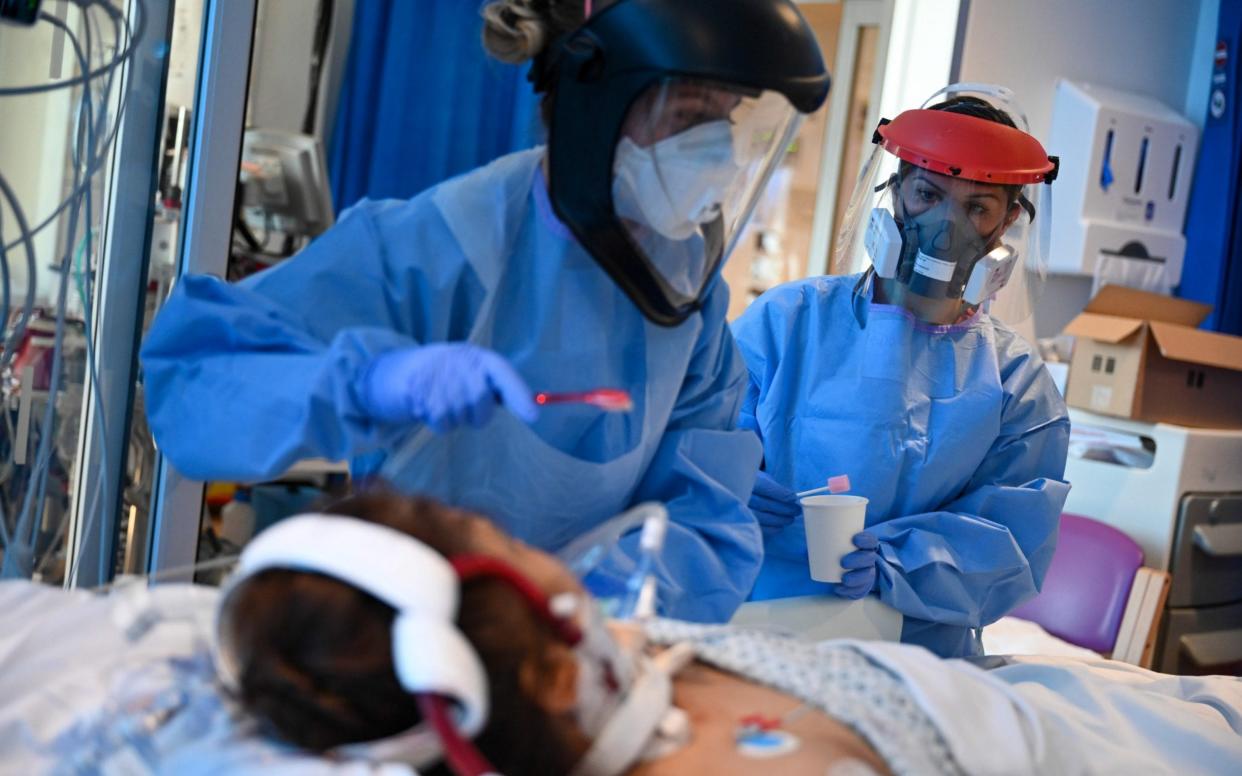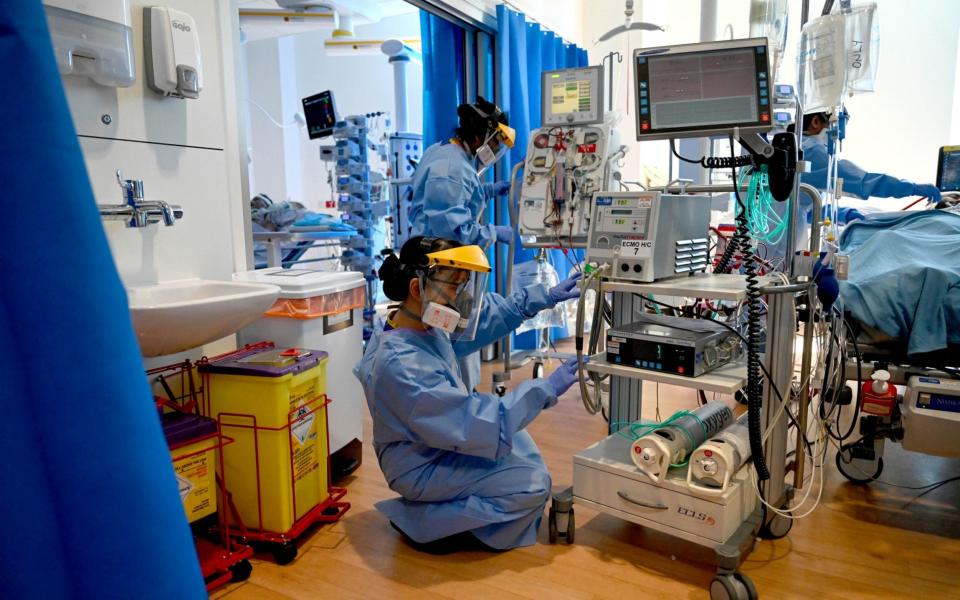Hospitals may be forced to move Covid patients elsewhere

Several hospitals in the north of England are already at full capacity and may have to start moving patients to other regions, doctors have warned.
Consultants fear that if Covid infection rates do not begin to fall significantly the NHS will be overwhelmed in less than a month from now.
Members of the British Medical Association have reported that Intensive Care Units (ICU) in a number of regions, including Manchester, Liverpool and Hull, are close to capacity as the number of people hospitalised with Covid-19 continues to grow.
Dr Vishal Sharma, chairman of the BMA’s consultants committee, told The Telegraph: “Capacity in the north of England is at the limits and in some places above the limit. Our next concern is ICU capacity, which is always tight at this time of year, even without Covid.”
Dr Sharma said some general ward beds could be adapted to provide intensive breathing support for Covid patients, and the re-opening of Manchester’s Nightingale Hospital may also take the pressure off ICU departments.
But more radical steps may have to be taken if numbers of hospitalised patients continue to rise.
“We may have to move patients around the country to create extra capacity, but if the whole country starts to struggle things will get very difficult.
“Patients should keep attending hospital, but parts of Liverpool, Manchester and Hull have begun to cancel elective surgery because we need the beds available.”

If hospitals begin to transfer patients it will be the first time since the principle of mutual aid was invoked during the peak of the pandemic, when a small number of people were moved to other intensive care units.
By Saturday there were 10,918 people in hospital suffering from Covid 19, up 2,987 from the previous week, and another 326 fatalities, bringing the total to 46,555 dead.
Wigan and Stockport last week became the first hospital systems in Greater Manchester to start suspending operations as the number of Covid patients across the conurbation nears April’s peak. Wrightington Wigan and Leigh (WWL) Teaching Hospitals NHS Foundation Trust has reduced some of its “less urgent services”.
Leeds Teaching Hospitals Trust has been cancelling non-essential routine surgeries since Wednesday in order to make space for Covid treatments. Some cancer operations at Nottingham have also been cancelled due to “pressure on intensive care units”.
Airedale Hospital, in Keighley, West Yorkshire, has postponed non-urgent operations and elective surgery requiring patients to stay overnight for two weeks amid a rise in Covid cases, citing “increasing demand on the hospital which is in turn meaning our inpatient beds are at capacity”.
The South West Acute Hospital (SWAH) in Enniskillen, Northern Ireland, was operating at an above-capacity level on Thursday, with patients awaiting beds. Figures also show no free ICU beds in Altnagelvin, and two free ICU beds in the SWAH.
Dr Sharma said a national lockdown was needed to stem the rise of the infection rate and that if this did not begin to fall significantly the NHS would be overwhelmed.
“We need to make sure community transmissions start to go down. There's some sign the rate of increase is starting to come down in the north west and that’s why the restrictions are so important. But the rate needs to fall and if the rate doesn’t start to fall we will have real problems, with more elective surgery having to be cancelled and more Nightingale hospitals re-opened. That’s the situation we have to avoid at all costs, otherwise that’s where the NHS will be overwhelmed.
“At the moment the south of England is four to five weeks behind and is OK with ICU capacity and other beds, but in the north it's pretty tight and close to full capacity in ICU and high dependency beds.”
The consultant cardiologist added: “The pinch point will come in the next three or four weeks. If the transmission rate doesn’t start to fall we risk being overwhelmed.”
Cllr Paul Brant, Liverpool city council’s cabinet member for public health and social care, said hospitals in the region are “coping, but they’re coping at the cost of having to constrain some of the elective stuff.
“It is having knock on consequences because the NHS can’t function in the way it would aspire to do. It’s having to cancel elected procedures.”
He added: “I wouldn’t want to use the word overwhelmed, because I think the NHS will make available enough capacity. But the word I would use is we will see the NHS badly affected.
“I would suspect they will make sure they can treat on an emergency basis, but it will be at the cost of lots of elected surgery won’t take place and lots of people won’t be attending hospital who ought to be attending hospital. And that failure will result in greater levels of sickness and deaths due to non-Covid reasons in the following months.”
There has also been a sharp rise in Covid admissions to hospitals in Wales. Latest NHS Wales figures show 1,110 Covid-19 patients in hospital beds, more than 80% of the level at the pandemic's peak in April.
The director of the Welsh NHS Confederation Darren Hughes said: "What we're seeing is field hospitals which were part of the contingency planning for dealing with the effects of Covid now starting to be used - particularly in the RCT area, but also in other parts of Wales."
As of Friday 28 wards across Scotland were closed to new admissions, with 17 of those in the NHS Greater and Glasgow Clyde area, where reported hospital cases are now higher than at the first peak of the pandemic.

 Yahoo News
Yahoo News 
